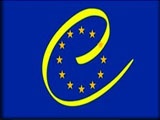|
|
TODAY.AZ / Politics
Azerbaijan to pay ˆ850,624 to Council of Europe budget next year
25 November 2010 [14:20] - TODAY.AZ
 The Committee of Ministers of the Council of Europe has adopted the organization’s programme and budget for 2011, APA reports citing the official website of the EU. The programme and budget for 2011 reflects the need to control expenditure, reduce operating costs and redeploy resources to priority sectors including:
The Committee of Ministers of the Council of Europe has adopted the organization’s programme and budget for 2011, APA reports citing the official website of the EU. The programme and budget for 2011 reflects the need to control expenditure, reduce operating costs and redeploy resources to priority sectors including:EU accession to the European Convention on Human Rights and the follow-up to the Interlaken Conference on the future of the European Court of Human Rights,
Reinforcement of the Office of the Commissioner for Human Rights,
Review of Council of Europe conventions,
Consolidation and better co-ordination of existing monitoring mechanisms,
Targeted co-operation and work in the field.
Reinforcement of the Office of the Commissioner for Human Rights,
Review of Council of Europe conventions,
Consolidation and better co-ordination of existing monitoring mechanisms,
Targeted co-operation and work in the field.
The Council’s programme of activities and budget are now set out in a single document, enabling it to work in a more strategic, more focused and more consistent manner. The member states have also agreed in principle to move to a biennial budget from 2012.
“The new programme and budget is one of the cornerstones of the ongoing reform and reflects the desire of the organization and the member states to focus on what we can do best, in areas where we are the leading players and where we can have a real impact.
It is also a platform for looking ahead, in particular for external funding and especially through an enhanced partnership with the European Union”, said Thorbjørn Jagland, Secretary General of the Council of Europe.
The Ordinary Budget for 2011 totals ˆ217 million, reflecting zero growth compared with the 2010 budget. Member states’ contributions stand at ˆ211 million. France pays the most membership fee among 47 countries. It will allocate ˆ37 90 11 to Council’s budget. Germany, Italy and Great Britain follow France in this list.
In the CIS space Russia pays the most allocation - ˆ29 758 480. Azerbaijan will pay ˆ850 624 to Council’s budget. Georgia will pay ˆ358 974, while Armenia will pay ˆ341 967.
/APA/
URL: http://www.today.az/news/politics/77172.html
 Print version
Print version
Views: 1056
Connect with us. Get latest news and updates.
See Also
- 24 November 2025 [18:21]
Nearly 200 anti-personnel mines found in Azerbaijan’s freed territories - 24 November 2025 [16:32]
Azerbaijani Parliament Speaker meets Slovak Ambassador - 24 November 2025 [15:13]
Azerbaijan congratulates Turkiye and Australia - 24 November 2025 [14:41]
ANCA recruits odious senators against Azerbaijan: Signatures for signatures' sake - 24 November 2025 [14:38]
Azerbaijani justice minister attends international conference in Saudi Arabia - 24 November 2025 [14:14]
Memorial anniversary of the "observers" in Armenia - 24 November 2025 [11:54]
President says coordinated Turkic World NGOs can greatly advance national objectives - 24 November 2025 [11:44]
President Ilham Aliyev addresses to participants of NGO Solidarity Forum of OTS countries - 24 November 2025 [11:34]
President: Growing potential of Turkic states requires establishing more flexible mechanisms - 23 November 2025 [12:55]
Sabotaging Peace: Voices in Yerevan prefer conflict to compromise
Most Popular
 British parliament hosts landmark launch of the Eurasia Policy Council
British parliament hosts landmark launch of the Eurasia Policy Council
 Azerbaijan brings together NGOs of Turkic States for first time
Azerbaijan brings together NGOs of Turkic States for first time
 President Erdogan plans to meet his Russian counterpart to discuss Ukraine
President Erdogan plans to meet his Russian counterpart to discuss Ukraine
 President Ilham Aliyev attends inauguration of pharmaceutical production facility
President Ilham Aliyev attends inauguration of pharmaceutical production facility
 COP29 achieves worldwide recognition for its breakthrough climate outcomes
COP29 achieves worldwide recognition for its breakthrough climate outcomes
 ANCA recruits odious senators against Azerbaijan: Signatures for signatures' sake
ANCA recruits odious senators against Azerbaijan: Signatures for signatures' sake
 OSCE PA delegation to visit Armenia this week
OSCE PA delegation to visit Armenia this week
